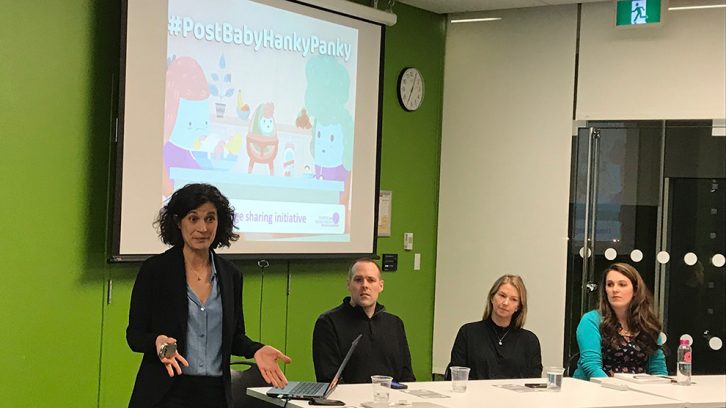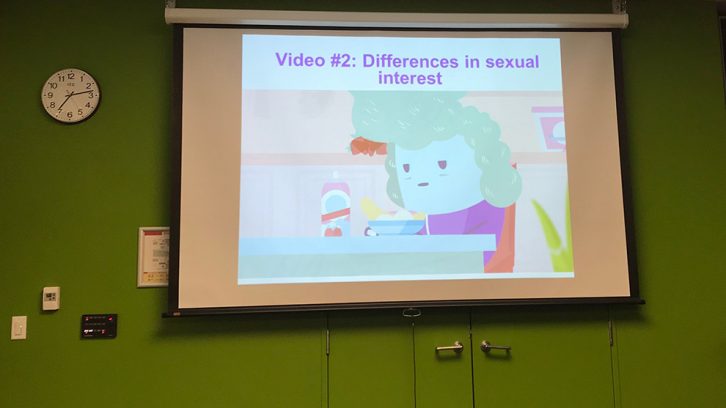SEX
Halifax researcher launches #Postbabyhankypanky campaign
90 per cent of couples reported sexual concerns after having a baby

caption
Finnegan McNamara came along with his parents to attend #Postbabyhankypanky.
caption
Natalie Rosen speaks at the panel discussion of #postbabyhankypanky.“I had zero interest in sex.”
This is how Heather Laura Clarke felt after having a baby. She was obsessed with her baby boy and didn’t prioritize her relationship with her husband.
Clarke isn’t an isolated case. Halifax researcher Natalie Rosen found that 90 per cent of couples In North America reported some sexual concerns after having a child.
On Monday, Rosen held a panel discussion at the Halifax Central Library to discuss her new awareness campaign: #Postbabyhankypanky.
Rosen, associate professor of psychology at Dalhousie University, wants parents to communicate more about these issues. At the talk, she introduced a website with information and short videos, that aims to address common sexual concerns new parents have.
“We know that sex is really important for couple’s relationships,” she said. “During the transition to parenthood and all of these challenges and stressors that parents are faced with, often their relationship and sex life take a bit of a hit.”
Rosen and her team studied more than 250 couples across North America. Her research showed that 90 per cent of couples resume intercourse by three months postpartum. However, one-third of the moms studied and about half of the dads report being unsatisfied.
The research also showed that parents were worried about how often they would have sex and if physical changes like breastfeeding would affect their sex lives.
Moms were also worried about tiredness and physical recovery while dads were worried about the differences in sexual interest.

caption
Five short videos were screened at the panel discussion.Communication is key, Rosen said, and with Valentine’s Day coming up it’s a time to talk about the barriers.
“A date night and sexy lingerie is not going to get you very far, if you’re still exhausted and waking up in the night,” she said. “We have to address both the barriers for sexual interest, as well as things that might boost sexual interest.”
Clarke, who was one of the panel members, said she’s fine now, but she wishes she knew about these issues after her first child in 2010.
“I’m really hoping that it’ll reach thousands of new parents because they are the ones who need to hear they have to focus on each other; they can’t just focus on the baby,” she said.
Sarah Vannier, who has an eight-week-old baby and was on the project’s research team, feels it’s crucial to talk about these things beforehand.
“You start to feel the shift in your relationship,” she said. “I think it’s important to think about these things and talk about these things, so you can come out the other side still enjoying yourselves as a couple and not just being parents.”
Most of the research related to #Postbabyhankypanky is based on couples in heterosexual relationships. Rosen is currently doing a study focusing on genital and pelvic pain over the transition of parenthood. She hopes to release this study next year.

